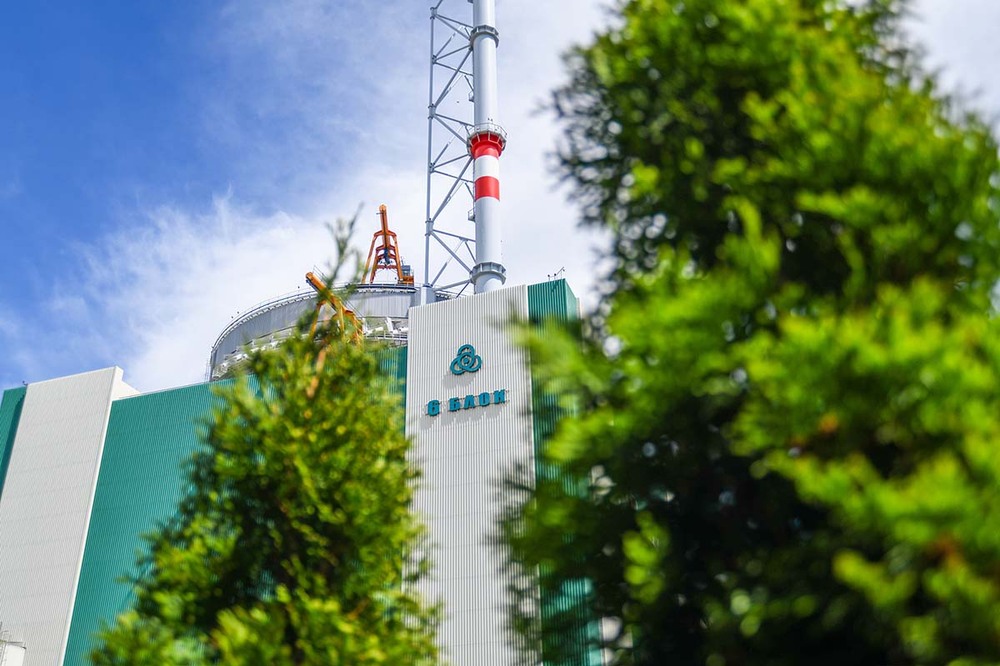site.btaBulgaria Agrees to Decommission Kozloduy Units 3, 4, Meeting Precondition for EU Entry


Twenty-three years ago, on September 26, 2002, Bulgaria's Council of Ministers approved this country's EU accession negotiating position on the Energy chapter of the acquis, including a decommissioning of Kozloduy N-Plant Units 3 and 4. An explicit commitment to this effect was inserted in the Treaty of Accession 2005.
The closure of the first four generating units of Bulgaria's only nuclear power plant 30 years before the end of their designated service life was a precondition for a go-ahead of the EU entry and was prompted mainly by safety concerns: the Soviet-built Units 1 to 4 were seen by the EU (and other experts) as having design deficiencies which were difficult or very costly to remedy to meet EU nuclear safety standards.
To comply with the pre-accession requirements, Bulgaria limited the modernization of Units 1 and 2 (older VVER-440 model) and definitively shut them down for decommissioning on December 31, 2002. Units 3 and 4 (improved VVER-440/230 model) were also definitively shut down for decommissioning on December 31, 2006 - a day before the country joined the EU.
Critics of the action argued that after heavy investment in the modernization of the units concerned (USD 311 million between 1991 and 2002), they could operate safely as any Western-type NPP for another eight to nine years (according to a 2002 evaluation by the International Atomic Energy Agency (IAEA) and were wrongly associated with Chernobyl type reactors. The losses due to the premature closure of the four reactors was estimated to exceed EUR 8 billion. The loss of some 12% of Bulgaria's total electricity production, which was generated by Units 3 and 4, had to be replaced by more coal burnt in thermal power plants, increasing the emissions of greenhouse gases. Job losses in the area of the plant and a general decrease in the region's generating capacity and an erosion of the security of supply in Southeast Europe were cited as other negative impacts.
An IAEA assessment showed that the decommissioning would cost at least EUR 868.8 million between 2007 and 2013.
EU financial assistance (EUR 550 million for the 2000-2009 period) in support of the units' closure was channeled mainly through the Kozloduy International Decommissioning Support Fund (KIDSF), managed by the European Bank for Reconstruction and Development (EBRD).
Following is the original English-language September 26, 2002 news item of BTA's External Service, covering the government decision on Kozloduy Units 3 and 4:
"118 NUCLEAR PLANT
New Formula for Nuclear Reactors 3, 4 Incorporated into Bulgaria's Position for EU Membership Talks
Sofia, September 26 (BTA) - The Government-proposed formula for the decommissioning of Units 3 and 4 of the Kozloduy Nuclear Power Plant is now incorporated into the country's position for the EU membership negotiations on the Energy chapter, European Affairs Minister Meglena Kouneva and Energy Minister Milko Kovachev told the press Thursday. Earlier in the day, the Council of Ministers approved additional information supplementing the national position on the Energy chapter.
Bulgaria accepts the fixing of the year 2006 in the Energy chapter as the date for closure of Units 3 and 4 on condition that the Atomic Questions Group (AQG) with the Council of the European Union conducts a technological check and the results are taken into consideration. In accordance with this formula, the Government proposes that the Energy chapter be closed conditionally and then reopened upon completion of the expert check, when it will be possible to review the closure dates for the two reactors.
If the AQG fails to conduct the technological review of the safety of Units 3 and 4, requested by Bulgaria, the Energy chapter will not be closed, Energy Minister Kovachev said, taking a question. "We would not mind fixing any date for the closure of Units 3 and 4, provided that we receive guarantees that such a technological check will be conducted and that the results from the check will be taken into account," Kovachev said.
According to Kouneva, "the Government would not have assumed the risk involved in putting forward the new formula if the circumstances had not been studied in advance." The European Affairs Minister said there is actually no risk in demanding a technological check because she has full confidence in the Energy Ministry's view concerning the safety of the two reactors.
"We are now beginning intensive consultations, and I hope that our efforts will yield results within the period of the Danish presidency of the EU," Kouneva said.
Asked whether a "contingency scenario" has been considered in the event of refusal to conduct a technological check, Kouneva said it is now important to focus all efforts on the course of action proposed by the Government. "It is too early to talk about Plan B. Let us be more optimistic," she said.
Asked whether Bulgaria may be requested to review its positions on Units 1 and 2, Kovachev said "this issue has been settled definitively and Bulgaria will honour all its commitments to the EU concerning their closure."
In its next report on Bulgaria's progress towards EU membership, the European Commission is expected to acknowledge that Bulgaria has made very significant progress in the energy sector, Kouneva said. HG/VE"
/LG/
news.modal.header
news.modal.text